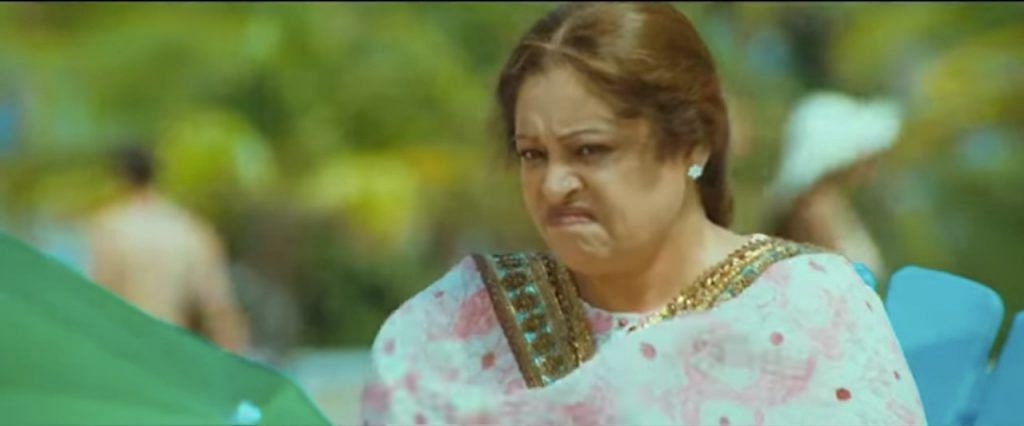If you’re a kid from a desi family and an aunty hasn’t reduced you to tears by asking intrusive questions, you aren’t for real.
It starts when you’re born and someone says ‘oh, she’s a little dusky, isn’t she?’, and it only gets worse from there.
In India’s patriarchal society, aunties fire their most pointed and annoying missives at girls. If you dare talk back to them, they immediately label you ‘bigde hue bacche’ or spoiled kids. But it’s time to fight back.
Who is an aunty?
Most desis (and Asians) use ‘aunty’ as a generic term for any woman, family or not, who is older to them. It doesn’t have to be familial, but they make it very personal. The moment you call someone ‘aunty’, it is a green light for them to poke, prod, and pinch your body, point out everything wrong with you, and tell you that you won’t get married (since that is what every girl aims for, according to them).
Also read: Does India’s low rank on global divorce rate indexes mean happy marriages or social pressure?
Clearly, Indian aunties don’t understand the concept of emotional autonomy and a youngster’s right to privacy. They think you are nothing but a sum of the things that people perceive you to be.
But here’s the problem: most aunties know that they are rude to young people.
They see it as a way to keep the kids grounded, or as they say – ‘bachhon ko zameen pe rakhna’. I call it a gross violation of basic human dignity.
If you talk back, they can embarrass you in front of everyone by telling you that you lack tehzeeb (refinement) and lihaaz (consideration).
In their eyes, anyone younger to them doesn’t deserve cognisance as a human being – they’re just children, you see, and children are meant to be resilient. Never mind the trauma of having to exist in the spaces left by words that claw at your skin and consistently remind you that you’re less.
Patriarchy & the cycle of hurt
See, I empathise with the aunties. They are products of patriarchy and the way they behave is a reaction to so much surviving they have had to do. I understand that they’re just existing in ways they have been allowed to, but that does not give them a pass to raise the next generation with the same violence. These cycles of hurt and survival only break when someone puts a stop to them. This onus should be on the aunties (and uncles too). They are so fond of reminding us about how they’re older and wiser and smarter – so why don’t they take this step and find ways to be kinder?
Also read: What the West gets wrong about arranged marriages
Well, because they’re terrified of giving up the illusion of power, which they seem to derive from making kids feel bad.
So, I say, we should do the needful.
How to fight back
I’m tired of waiting for them to do this, so I’ve decided to do it for them. Every time an aunty tries to tell me how I should be, I’ve decided to tell them how they should be too. I mean, it’s just fair, isn’t it?
Every time someone comments on my weight, I ask them if they know their kid has been shamed into being perennially insecure about herself. Every time they ask me if I’m thinking of marriage, I ask them if theirs is any template to go by, because it looks incredibly toxic on the outside. Every time they try to complain about me to my parents, I leave them flabbergasted – because my parents know about every silly thing I do.
As a result, most aunties (and some uncles) are now terrified. The ones who love me, love me because I’m straightforward with them, not despite it. Those who used me as a bashing bag for their insecure egos have learned to steer clear of me.
It’s a comfortable arrangement, and one I’ve come to value as I’ve grown up. My decisions are mine, and my parents know they’re raised me well. After years of having my self-esteem crushed by aunties and their kehena (what they say), I’ve built it back on my own terms.
Also read: Inter-caste marriages are good for health of Indians. That’s what DNA testing tells us
I don’t recommend this rather aggressive approach to everyone. Not everyone has the privilege or the ability to do that. But I do recommend shutting down any unsolicited advice, irrespective of it coming from a ‘good’ place or not. You are a whole person and you have the right to decide whose inputs you take in for your growth. Your body, your heart, and your soul deserve nurturing, not tearing down.
Break the cycle of hurt and violence, and reclaim your space.
The author is a poet. Views are personal.
